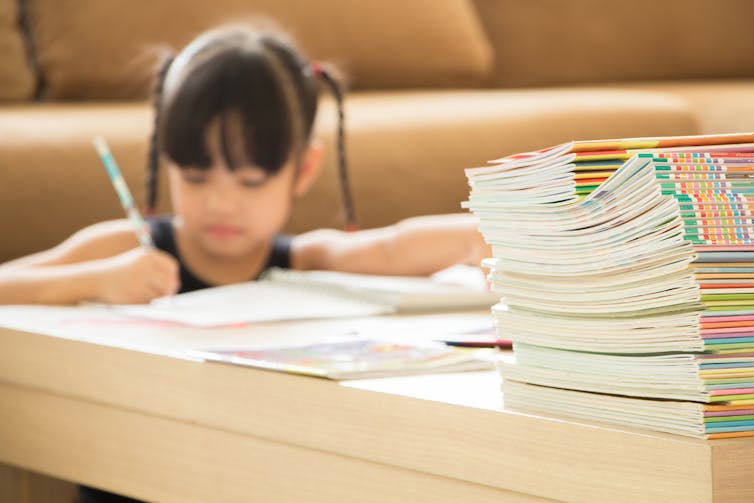
Not everyone agrees of course. According to the Campaign for Real Education group:
A little bit of homework to support what you’re doing in the classroom, involving your parents and guardians, is really good because it allows you to do as well as everybody else in the world.Traditionally, in the UK, primary teachers are expected to hand out homework every day of the school week. At the start of my own career in teaching in the 1990s, school policy dictated that assignments consisted of reading from the literacy scheme book, spelling words to learn and sentences to write, as well as some numeracy linked to the current concept being taught, or revision of another. It didn’t exactly sound motivating for the pupils …
The “no homework” policy currently adopted by some headteachers was not an option that was discussed or even considered. But over time, my increasing professional confidence made me feel able to question school policy. I tried to offer pupils homework tasks which engaged them – and which also served some sort of educational purpose.
Pupils responded positively to the change and there is research that supports such an approach. Education expert John Hattie, who has analysed student achievement in great detail, claims that homework does not assist the progress of primary school pupils where the content is not linked to classroom concepts. He said: “The worst thing you can do with homework is give kids projects; the best thing you can do is reinforce something you’ve already learned.”
Other arguments in a similar vein maintain that home-based revision is helpful for long-term memory retention. Parental views vary of course, but those in favour may see the value of home work not just as helpful in terms of the school curriculum, but also in developing important skills in time management, organisation, self discipline and independence.
In spite of these arguments, I still wonder how beneficial homework really is. Are any benefits more important than activities missed or time spent with parents, guardians or siblings? Was handing out homework the best use of my time and effort as a teacher?
When you consider the importance of quality feedback, the value of homework continues to be questionable. For teachers, collecting in homework at the end of the day or week for marking and assessment causes substantive time pressure in an already pressured environment.
If homework is to be of value to learning, teachers need to offer an appropriate response of quality. This takes time, and would be better carried out through dialogue rather than written comments in a homework jotter that pupils may or may not pay attention to.
Lesson learned
Would pupils not gain more from engaging in other activities such as sport or music of their choice? Put simply, such activities offer learning opportunities which could be as valuable as homework, if not more so, given that they are chosen by the children themselves.
Read more: A-levels vs the International Baccalaureate: which makes a more rounded student?
In addition, these kind of activities may involve spending positive quality time with other members of society such as family and friends.
Spending home time on school work can cause tension within families, with stress and resentment on both sides. Children may see homework as taking time away from activities of their choice while parents are placed in a position of feeling compelled to make sure it is completed.
It also comes with the assumption that they are able to provide requisite support. Such an assumption does not account for the diversity of educational backgrounds that exist in parents.
So, if I was back in front of a class full of primary school pupils at the end of a day, what would my approach to homework be? Well, with experience comes the ability to adopt a broader perspective on life and schooling – so my likely response would be to adopt a “no homework” policy.
Instead, I’d advise them to choose an enjoyable activity which involves learning new things and interacting with others. The literacy scheme and numeracy concepts can wait until tomorrow.
Lorele Mackie, Lecturer in Education, University of Stirling
This article is republished from The Conversation under a Creative Commons license. Read the original article.
No comments:
Post a Comment